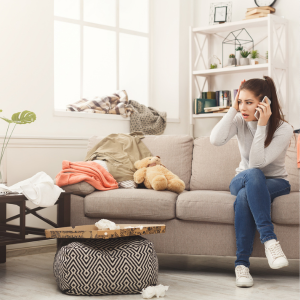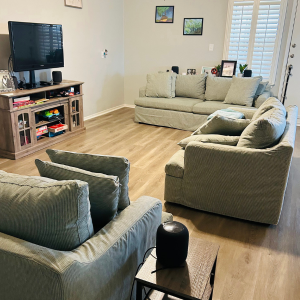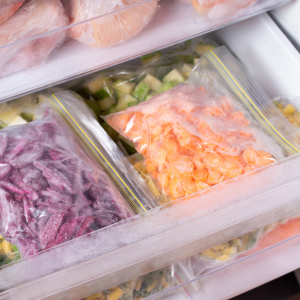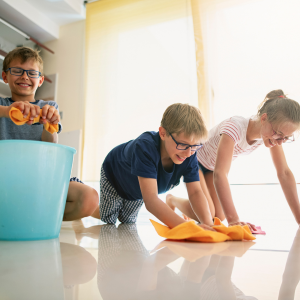Hydrogen peroxide, a simple, inexpensive yet effective cleaning agent with disinfecting, whitening, and sanitizing properties, is a must-have in my cleaning arsenal.
While it’s generally safe, you need to handle it carefully and avoid ingesting it. Always wear gloves when using hydrogen peroxide, and ensure proper ventilation. In this post, I will discuss 26 effective uses of hydrogen peroxide in cleaning.
Practical uses of hydrogen peroxide for cleaning
1. Disinfecting countertops
Hydrogen peroxide is excellent for cleaning and disinfecting granite and quartz countertops. I usually mix equal parts hydrogen peroxide and water, and a few drops of dish soap. Apply the mixture to the surfaces and let it sit for 2-3 minutes before cleaning and wiping them.
2. Cleaning tile and grout
Mix hydrogen peroxide with a few drops of dish soap and apply it directly on the grout lines. Let the mixture sit for a few minutes to allow the stains to dissolve, then scrub with a grout brush or an old toothbrush, rinse, and dry. Hydrogen peroxide also helps to whiten the grout and prevent mold.
3. Removing mold and mildew in the shower.
Spray 3% hydrogen peroxide onto the affected areas and let it sit for 10-20 minutes before scrubbing and wiping them clean.
4. Degreasing kitchen appliances
Mix hydrogen peroxide, baking soda, and dish soap to form a thick paste. Use the mixture to break down and cut through grease and stains on stovetops, range hoods, and appliances. Make sure to rinse thoroughly after cleaning.
5. Cleaning glass and mirrors
Pour hydrogen peroxide into a spray bottle and add a small amount of water to dilute it. Use it to clean and wipe the glass windows or mirrors with an e-cloth or a lint-free glass cloth to remove streaks and smudges.
6. Remove stains from the floor rugs, carpets, and upholstery
Apply hydrogen peroxide directly to the stained area and let it sit for a few minutes before gently dabbing the area with a clean cloth.
7. Disinfecting toothbrushes
To kill germs and bacteria, soak toothbrushes in a mixture of equal parts hydrogen peroxide and water for 10-15 minutes. Rinse the brushes with water before using or storing them.
8. Cleaning and deodorizing cutting boards
Spritz hydrogen peroxide onto your cutting boards, let it sit for a few minutes or until it spritzes, and then rinse it with clean water. Hydrogen peroxide helps disinfect and remove odors.
9. Removing pet stains and odors
Soak the stained areas with hydrogen peroxide and let them sit for a few minutes before blotting or cleaning them with a clean cloth.
10. Cleaning and disinfecting humidifiers
To prevent mold and bacteria growth, add a mixture of 4 parts distilled water and 1 part hydrogen peroxide to the humidifier and let it sit for 30 minutes before emptying it.
11. Disinfecting sponges and dishcloths
Soak sponges and dishcloths in a mixture of water and hydrogen peroxide for 10-15 minutes to kill bacteria and eliminate odors. Rinse and dry thoroughly thereafter.
12. Removing soap scum in the shower
Mix a runny paste of 2 parts hydrogen peroxide and 1 part baking soda and apply it to the surfaces. Let it sit for 20-30 minutes to allow the soap scum to break down. Scrub and rinse the surfaces well to remove all the soap scum.
13. Cleaning and disinfecting makeup brushes
To disinfect your makeup brushes, soak them in a mixture of baby shampoo, hydrogen peroxide, and warm water. Rinse, dry, and store them properly.
14. Cleaning and deodorizing trash cans
After removing the trash, clean the area and spray hydrogen peroxide into the trash cans to disinfect and eliminate odors.
15. Cleaning and disinfecting cutting tools
After washing kitchen knives and other cutting tools, soak them in hydrogen peroxide for a few minutes to disinfect them. Then, dry and store them correctly.
16. Cleaning and disinfecting refrigerator shelves and bins
Spray hydrogen peroxide on the shelves and bins of your refrigerator, and let it sit for at least 10 minutes before cleaning and wiping them down to remove odors and kill germs.
17. Removing wine and blood stains from fabrics
Pre-soak wine or blood-stained clothing and bedding in a mixture of water and hydrogen peroxide before washing them
18. Disinfecting door handles and light switches
Use a damp cloth dipped in hydrogen peroxide to wipe down frequently touched surfaces, such as door handles and light switches, to sanitize, disinfect, and kill germs.
19. Cleaning the interior of a dishwasher
Add a quarter cup of hydrogen peroxide to the top rack of your dishwasher and run it on the empty high setting to disinfect, kill germs, and remove odors.
20. Clean toilet bowls
You don’t have to rely on commercial toilet bowl cleaners to clean your toilet. I make my toilet bowl cleaner and disinfectant from a mixture of equal parts of dish soap and hydrogen peroxide. I pour the solution into the bowl, let it sit for 15-20 minutes, then scrub with a toilet brush and flash. Hydrogen peroxide not only sanitizes the bowl but also disinfects it.
21. Cleaning fresh produce
To sanitize fresh fruits and vegetables, soak them in a solution of 1/2 cup of hydrogen peroxide and a gallon of water for at least 30 minutes before washing. Hydrogen peroxide may also help remove dirt and pesticides from the produce.
22. Disinfect Children’s toys
Hydrogen peroxide is excellent for sanitizing and disinfecting children’s toys, especially after playdates or when toys have been shared among multiple children. To disinfect toys, soak them in a solution of equal parts water and hydrogen peroxide. Rinse and dry.
23. Clean Sinks and faucets

Use hydrogen peroxide to clean, remove stains, and shine sinks and faucet handles. I usually mix 1/2 part baking soda, 1 part hydrogen peroxide, and a few drops of dish soap to create a paste. I then apply it to the sink or faucet and let it sit for a few minutes before washing it off.
24. Laundry
Add hydrogen peroxide to the dirty laundry to help remove odors, whiten and brighten bright-colored clothes, and remove stains. Add 1/2 cup of 3% hydrogen peroxide and your regular laundry detergent to your load.
25. Cleaning and wiping down cooktops
Make a thick paste of hydrogen peroxide, baking soda, and a few drops of Dawn dish soap. Apply it to the greased cooktop and let it sit for 30-45 minutes. Use a soft dish sponge or microfiber cloth to scrub away the paste. Rinse and dry well for a shiny look.
26. Cleaning garden tools
Hydrogen peroxide is excellent for disinfecting and cleaning gardening tools. It can help prevent the spread of fungus, bacteria, and viruses. Rinse your gardening tools in a mixture of equal parts water and hydrogen peroxide before storing them for the next job.
Frequently Asked Questions
Do I need to dilute hydrogen peroxide for cleaning?
Hydrogen peroxide is generally safe; however, depending on the strength of your product, you may need to dilute it to a suitable concentration for use. For instance, 3% hydrogen peroxide is already diluted in a ratio of 97% water and 3% hydrogen peroxide; therefore, it is unnecessary to dilute it further. Food-grade hydrogen peroxide is more potent and may need to be diluted before use in cleaning applications.
What can you mix with hydrogen peroxide for cleaning?
You can safely mix hydrogen peroxide with various cleaning agents, such as water, baking soda, and dish soap, to achieve more potent effects.
What can’t you mix with hydrogen peroxide?
Never mix hydrogen peroxide with vinegar, ammonia, or bleach, as this can produce harmful substances that can be toxic to your respiratory system, skin, and eyes.
Always test a small, inconspicuous area before using hydrogen peroxide on a surface to ensure compatibility and avoid any potential damage.
Things to avoid cleaning with hydrogen peroxide
While hydrogen peroxide is a versatile cleaner, there are certain surfaces on which it should not be used to prevent damage. Here’s a list of surfaces to be cautious with:
1. Colored Fabrics and Clothing
Hydrogen peroxide has bleaching properties and can easily bleach colored fabrics, leading to discoloration or fading. Always test on a small, hidden area first or opt for a color-safe alternative.
2. Natural Stone
Stone Surfaces: granite, marble, and limestone can be etched or damaged by hydrogen peroxide. These materials are porous, and the hydrogen may break down their sealant or finish, causing damage.
3. Wooden Surfaces
Raw or unsealed wood can absorb hydrogen peroxide, which can cause the wood to warp or discolor. If you need to disinfect wood, opt for a diluted solution and test a small hidden area first to ensure the solution is safe and effective.
4. Leather
Hydrogen peroxide can dry or damage some leather surfaces. It may cause discoloration or change the texture of some leather surfaces. Use cleaners specifically designed for leather care.
5. Electronic devices
Avoid getting hydrogen peroxide on screens or electronic surfaces, as it can damage sensitive materials or coatings.
6. Painted Surfaces
Hydrogen peroxide can cause the paint to fade or peel off in some cases. Test on a small, unsuspecting area before using hydrogen peroxide.
7. Rubber
Some rubber surfaces or components may degrade or discolor when exposed to hydrogen peroxide; therefore, exercise caution when cleaning items such as rubber mats or grips with hydrogen peroxide.
Safety Tips
Always read the manufacturer’s guidelines for cleaning any surface before using hydrogen peroxide.
When in doubt, try a diluted solution on a hidden area to see how the surface reacts.
Wear gloves when handling hydrogen peroxide directly to protect your skin from irritation.
Avoid cleaning these surfaces with hydrogen peroxide to prevent unnecessary damage.
Inexpensive Homemade cleaning solutions you can make using hydrogen peroxide
Here are five homemade cleaner recipes I make using hydrogen peroxide:
All-Purpose Cleaner
What you will need
1 cup hydrogen peroxide (3% solution)
1 cup water
1 tablespoon dish soap (optional for extra grease-cutting)
Instructions:
1. In a spray bottle, combine hydrogen peroxide and water.
2. If desired, add dish soap for added cleaning power.
3. Shake gently to mix the ingredients.
4. Use on countertops, appliances, and other surfaces. Avoid using it on colored fabrics or stone surfaces, as hydrogen peroxide can cause them to bleach or etch them.
Bathroom Mold and Mildew Remover
What you will need
2 cups hydrogen peroxide (3% solution)
1 cup water
A few drops of essential oil (like tea tree or lavender) for scent (optional)
Instructions
1. Mix hydrogen peroxide and water in a spray bottle.
2. Add essential oil if using, and shake well.
3. Spray on moldy or mildewy surfaces in your bathroom.
4. Let it sit for 10-15 minutes, then scrub and rinse with water.
Glass Cleaner
What you will need
– 1 cup hydrogen peroxide (3% solution)
– 1 cup water
Instructions
1. Combine hydrogen peroxide and water in a spray bottle and mix well.
2. Spray on glass surfaces, including windows and mirrors, then wipe with a microfiber or lint-free cloth for a streak-free shine.
Laundry Whitener and Stain Remover
What you will need
1 cup hydrogen peroxide (3% solution)
½ cup baking soda
1 gallon of water (for soaking)
Instructions
1. For spot treatment, mix hydrogen peroxide and baking soda into a paste.
2. Apply directly to stains on clothing and let sit for at least 30 minutes before cleaning it off.
3. For whitening laundry, mix 1 cup of hydrogen peroxide with 1 gallon of water in a basin and soak whites for 1-2 hours before washing.
Disinfecting Wipes
What you will need
1 cup hydrogen peroxide (3% solution)
1 cup water
Cloth squares or paper towels
Instructions
1. In a container, combine hydrogen peroxide and water.
2. Submerge cloth squares or paper towel strips in the mixture.
3. Use the wipes to clean and disinfect surfaces, then allow them to dry. Store any leftover wipes in an airtight container.
Grout cleaner
What you need
For Hydrogen peroxide and baking soda paste
1/4 cup Hydrogen peroxide (3% solution )
1/2 Cup baking soda
A few drops of dish soap
For hydrogen peroxide and water grout cleaner
Equal parts of 3 % Hydrogen peroxide solution and water
Instructions for the hydrogen peroxide and baking soda paste
Mix the hydrogen peroxide, baking soda, and dish soap to make a runny paste.
Apply the paste on the grouts and let sit for 15-30 minutes
Scrub with a grout brush, rinse, and dry thoroughly.
Hydrogen peroxide and water grout cleaner
Combine hydrogen peroxide and water in a spray bottle. Mix well and spray on the grout.
Let the cleaner sit for 30 minutes to an hour. Scrub, rinse, and dry.
Safety Tips when making homemade cleaners with Hydrogen peroxide:
Always label your homemade cleaners clearly.
Store hydrogen peroxide in a dark container to maintain its effectiveness. Test on a small, inconspicuous area when using a new cleaner on surfaces.
These homemade cleaners are effective, natural, inexpensive, and easy to make. Why buy expensive cleaners when you can make your own using hydrogen peroxide and simple pantry ingredients? Start making these simple yet effective homemade cleaners now, save money, and protect your health from toxic cleaning solutions.
Incorporate hydrogen peroxide in your cleaning to enjoy its incredible benefits.
